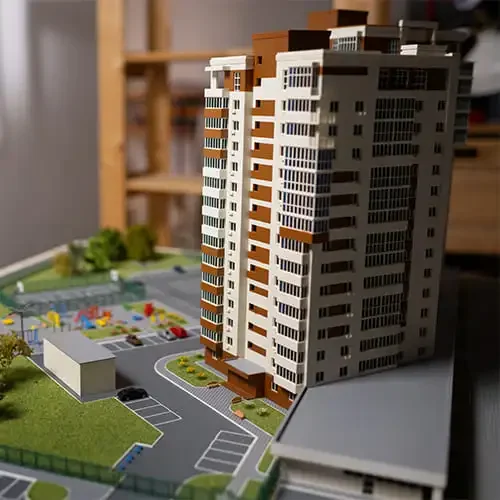Canada offers citizenship through naturalization and by birth in Canada
To qualify for citizenship through naturalization, Canadians must have three years of qualifying permanent resident status during the preceding five years and may apply for Canadian citizenship.

Real Estate Law

Immigration Law
Canadian Citizenship Requirements:
- ⦿ Must have been physically present in Canada for at least 183 days during any of the three qualifying calendar years that are fully or partially within the five years immediately before you apply.
- ⦿ Must have met any applicable requirement under the Income Tax Act to file income taxes for any three taxation years that are fully or partially within the five years immediately before you apply.
- ⦿ Must intend to reside in Canada or work outside Canada in or with, or accompany certain family members employed in or with: the Canadian Armed Forces or the federal public administration or the public service of a province.
- ⦿ Must be able to communicate (speak and understand) in English or French. (If you are 65 years of age or older, this does not apply.)
- ⦿ Must be able to demonstrate, in English or French, knowledge about Canada and the responsibilities and privileges of citizenship. (If you are 65 years of age or older, this does not apply.)
- ⦿ Must be 18 years old or older.
- ⦿ Must have adequate knowledge of the Citizenship Language Requirement if under the age of 64.

Our Services

Real Estate Law
Purchasing or selling a house or property lawyers near me? In our lives, these are the most significant transactions. A knowledgeable attorney at Estofa Law can offer legal counsel on a range of real estate issues, regardless of your level of experience as an investor or first-time home buyer.

Immigration Law
You may rely on Estofa Law for trustworthy immigration assistance. Our knowledgeable staff helps with Temporary Resident Application, Permanent Resident Applications, Citizenship Applications, and more, assisting you confidently at every turn.

Family Law
Our staff at Estofa Law can assist you in comprehending your options, rights, and responsibilities about any particular challenging circumstance you may be facing. You need to be aware of your options, rights, and responsibilities in the complicated field of family law.

Mortgage Refinancing
Trust Estofa Law for all your real estate needs. Our skilled team ensures smooth property transactions, providing security and peace of mind throughout the process.

Wills & Power of Attorney
Our law firm offers comprehensive Wills & Power of Attorney services, providing expert guidance to safeguard your assets and ensure your wishes are legally protected and respected.

Permanent Residence
Our committed group of immigration attorneys provides knowledgeable direction and assistance during the whole application procedure. We offer specialized tactics to achieve your unique immigration objectives.
Minor Application (under 18 years of age)
Individuals who are minors and under the age of 18 and are permanent residents may apply for Canadian citizenship if one of their parents is a Canadian citizen or is applying for citizenship at the same time. The application process is straightforward and only requires the completed application and processing fee; there is no need for the minors to take the citizenship test.
You may be ineligible for Canadian citizenship if you:
- ⦿ Being under a removal order
- ⦿ Having a criminal record or facing charges in Canada
- ⦿ Having been refused Canadian citizenship due to misrepresentation
- ⦿ Having had your Canadian citizenship revoked
Overview of Citizenship Application Processing:
Once an individual submits their citizenship application, it is sent to the citizenship office in Sydney, Nova Scotia. At this office, the application is pre-screened to ensure that it is complete and meets the requirement of having lived in Canada for at least 4 years. After the pre-screening process, the applicant will typically wait for about 12 months before being required to attend an interview to demonstrate their knowledge of Canada in one of Canada’s official languages. The interview will test the applicant’s knowledge of Canadian history, government, and culture, and will be conducted by a citizenship officer.
Language Requirement for Canadian Citizenship:
To become a Canadian citizen, applicants aged 14-64 must show evidence of their language proficiency in one of Canada’s official languages. The language requirements are described as the ability to:
- ⦿ Participate in short, everyday conversations
- ⦿ Understand simple instructions
- ⦿ Use basic grammar, simple structures, and tenses in oral communication
- ⦿ Use vocabulary that is appropriate for routine oral communication
To apply for Canadian citizenship, the applicant must have sufficient speaking and listening skills in English or French, as described below. There is no need for written proficiency. The evidence of language proficiency can be provided in the following ways:
- ⦿ Results of an IRCC-approved language test
- ⦿ Diploma or transcripts showing secondary or
- ⦿ Post-secondary education in English or French
- ⦿ Results from a government-funded language course showing CLB 4 or NCLC 4 or higher
- ⦿ Applicants who took language tests during the permanent residency application process can also use those results as evidence of proficiency, even if the results have since expired. The currently approved language tests for citizenship applications by IRCC are:
- ⦿ International English Language Testing System (IELTS)
- ⦿ Canadian English Language-Proficiency Index Program (CELPIP)
- ⦿ Test d’Évaluation Française (TEF)
- ⦿ Test d’Évaluation du Français Adapté au Québec (TEFAQ)
Citizenship Refusal
If your application for Canadian citizenship is denied, you have the option to appeal the decision to the Federal Court of Canada. The appeal process begins with filing a Notice of Application with the Federal
Court within 30 days of receiving the decision from Citizenship.
Immigration lawyers in Burlington help you with your Citizenship application and can help and assist you in order to appeal the decision to Federal Court of Canada.





